(i) 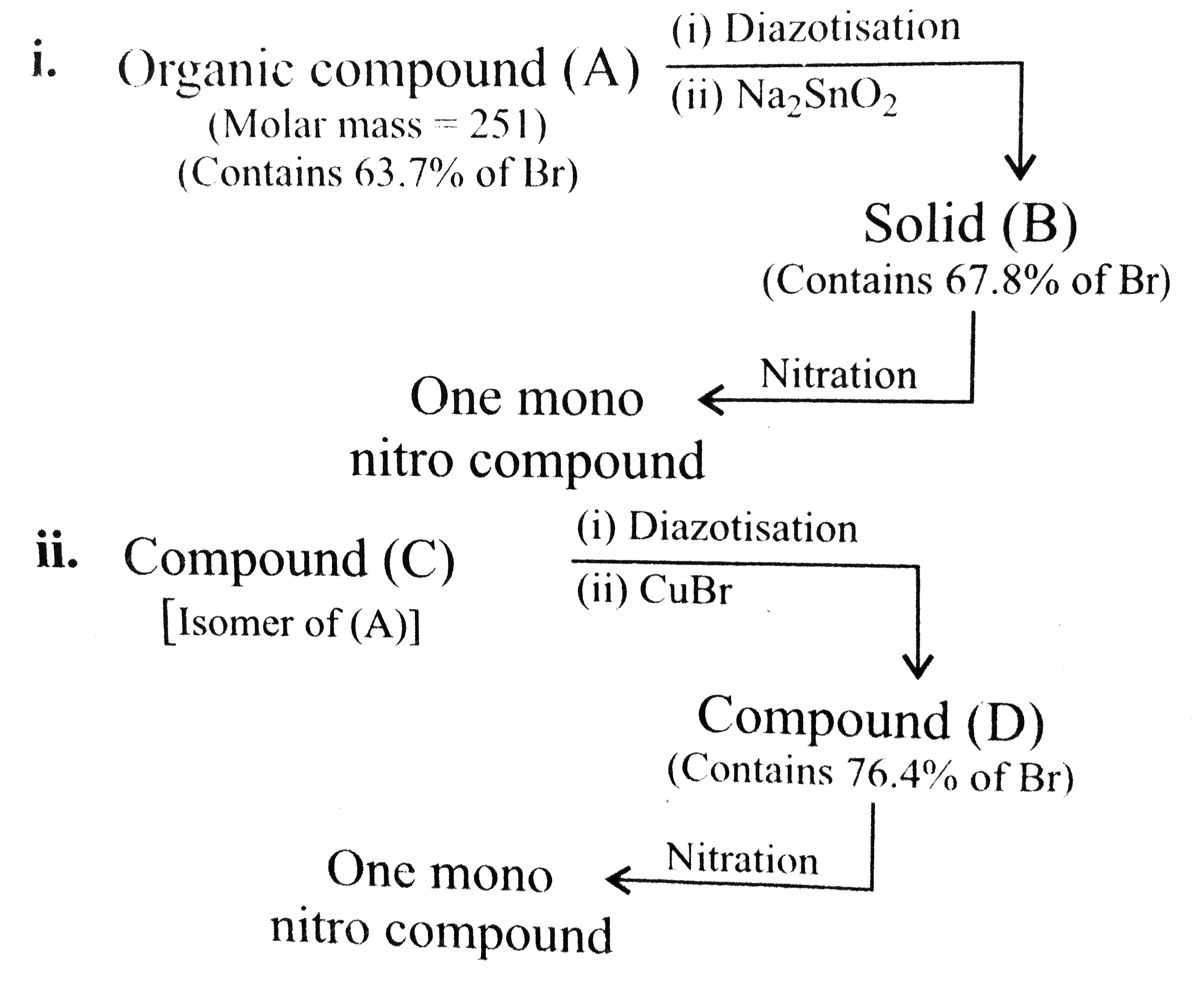
(ii)
Compound(B)is:
A
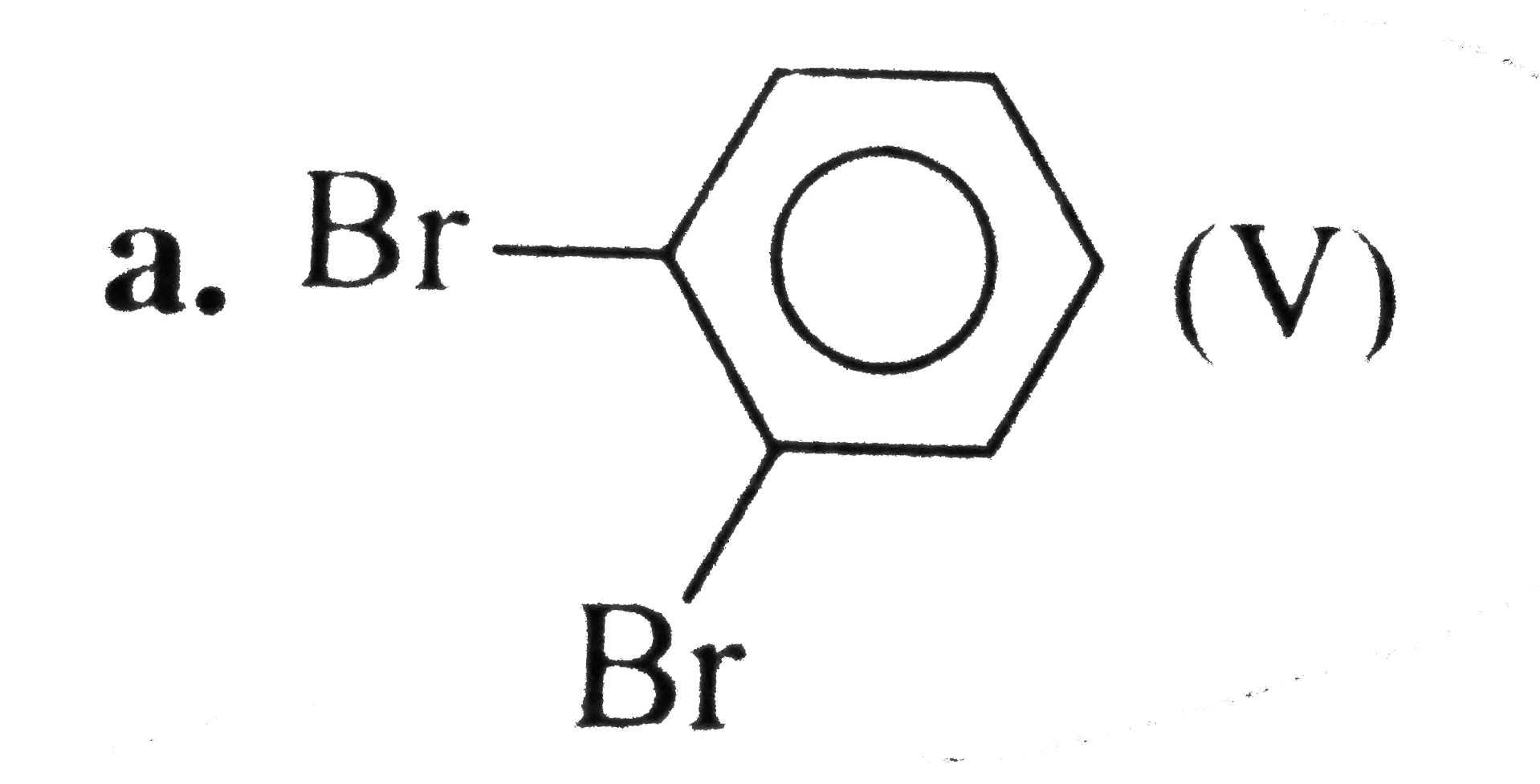
B
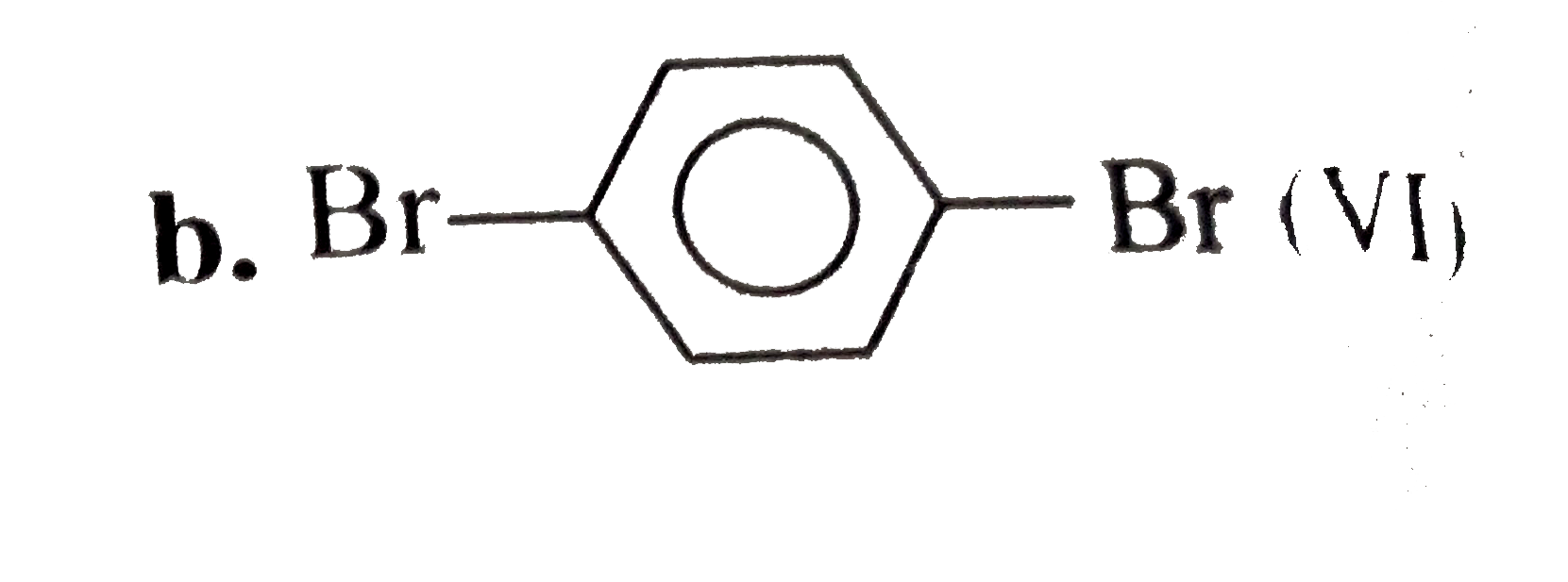
C
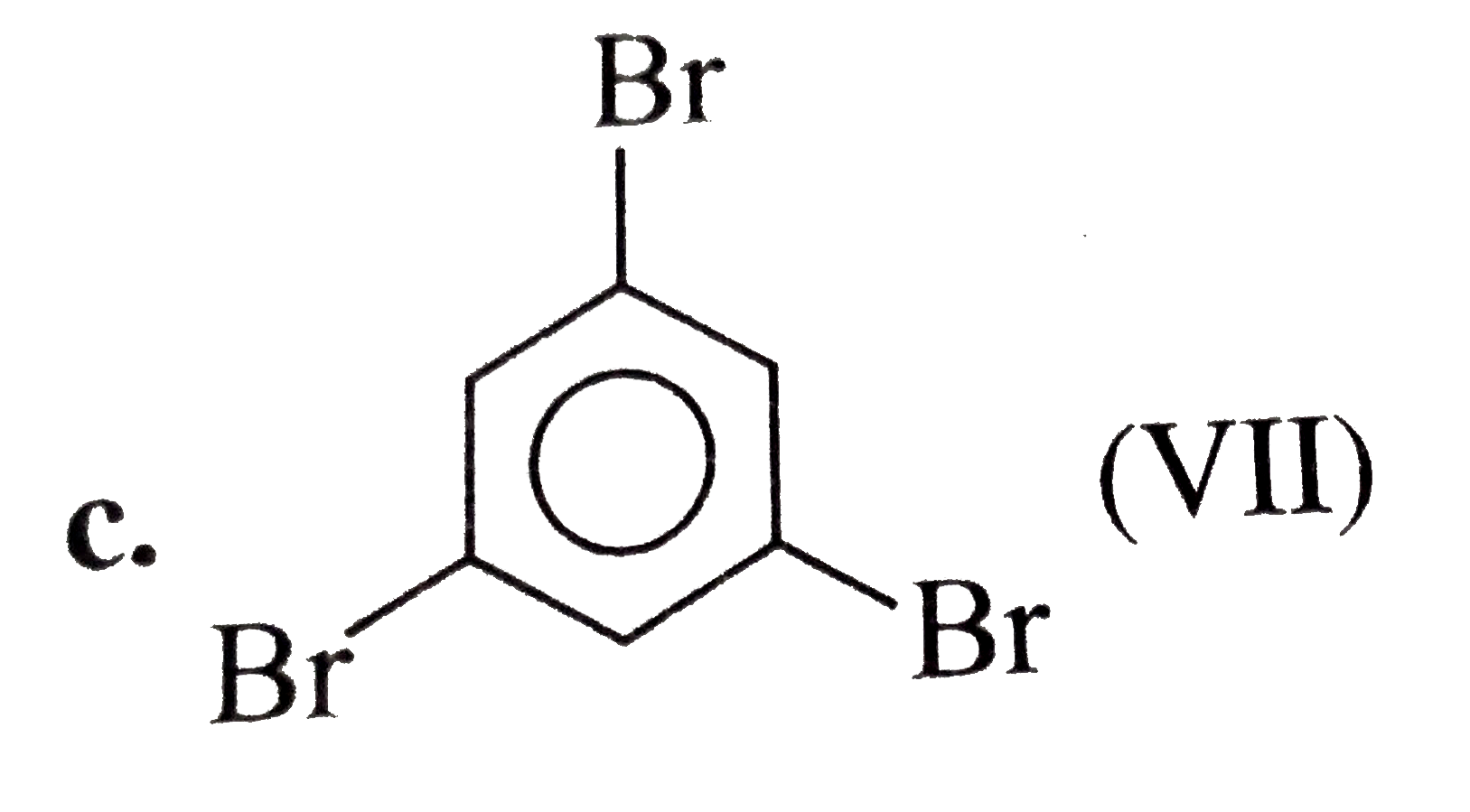
D
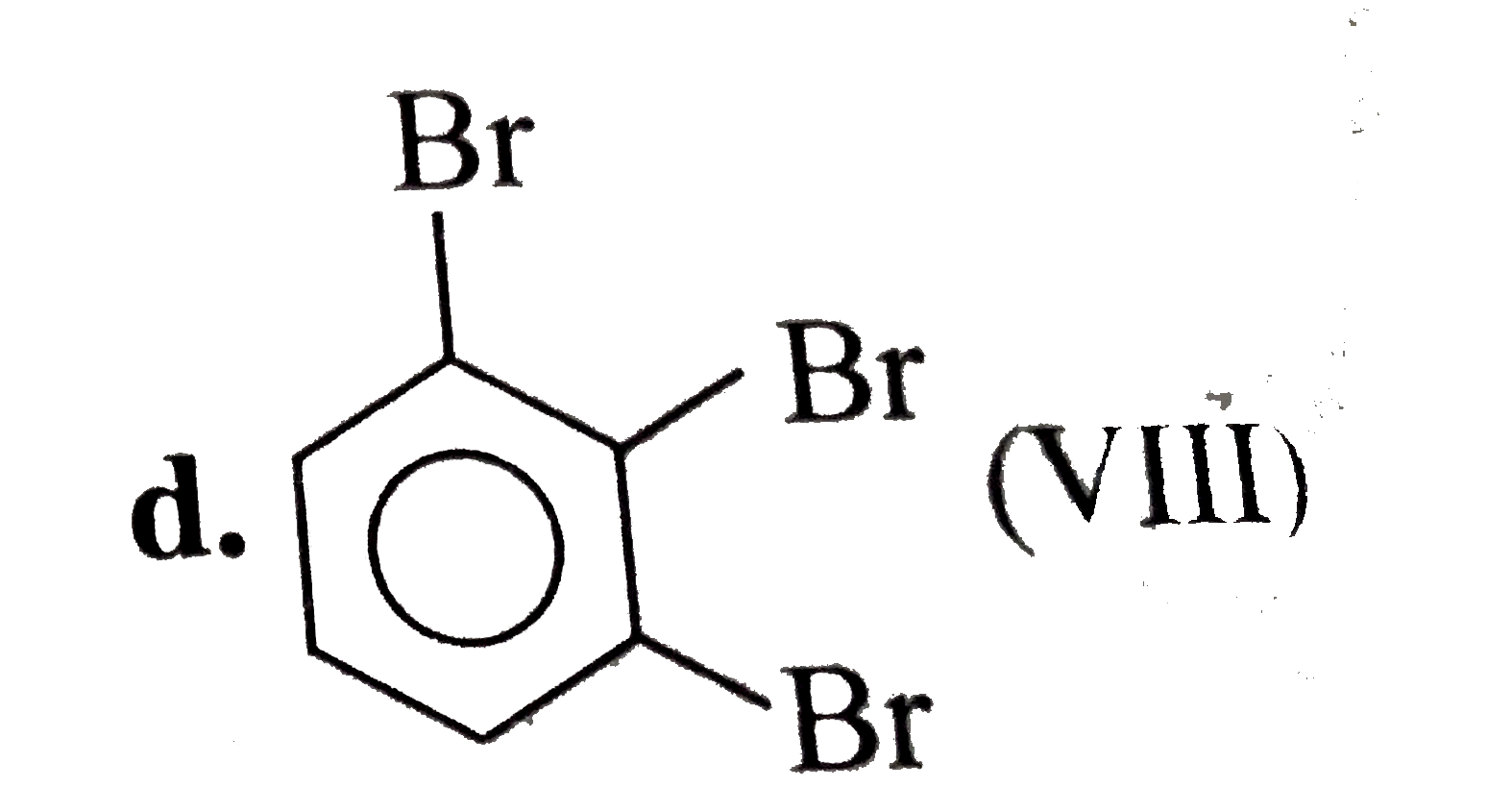
Text Solution
a. In compound(A), the (−NH2)group is removed and from the percentage of(Br) in(A) ,it is suggested that two(Br)groups are present in(A).The formation of one mono-nitro derivation from(B)suggests that two(Br)grops are present at para -position (OMP=231) .
So compound (A) is 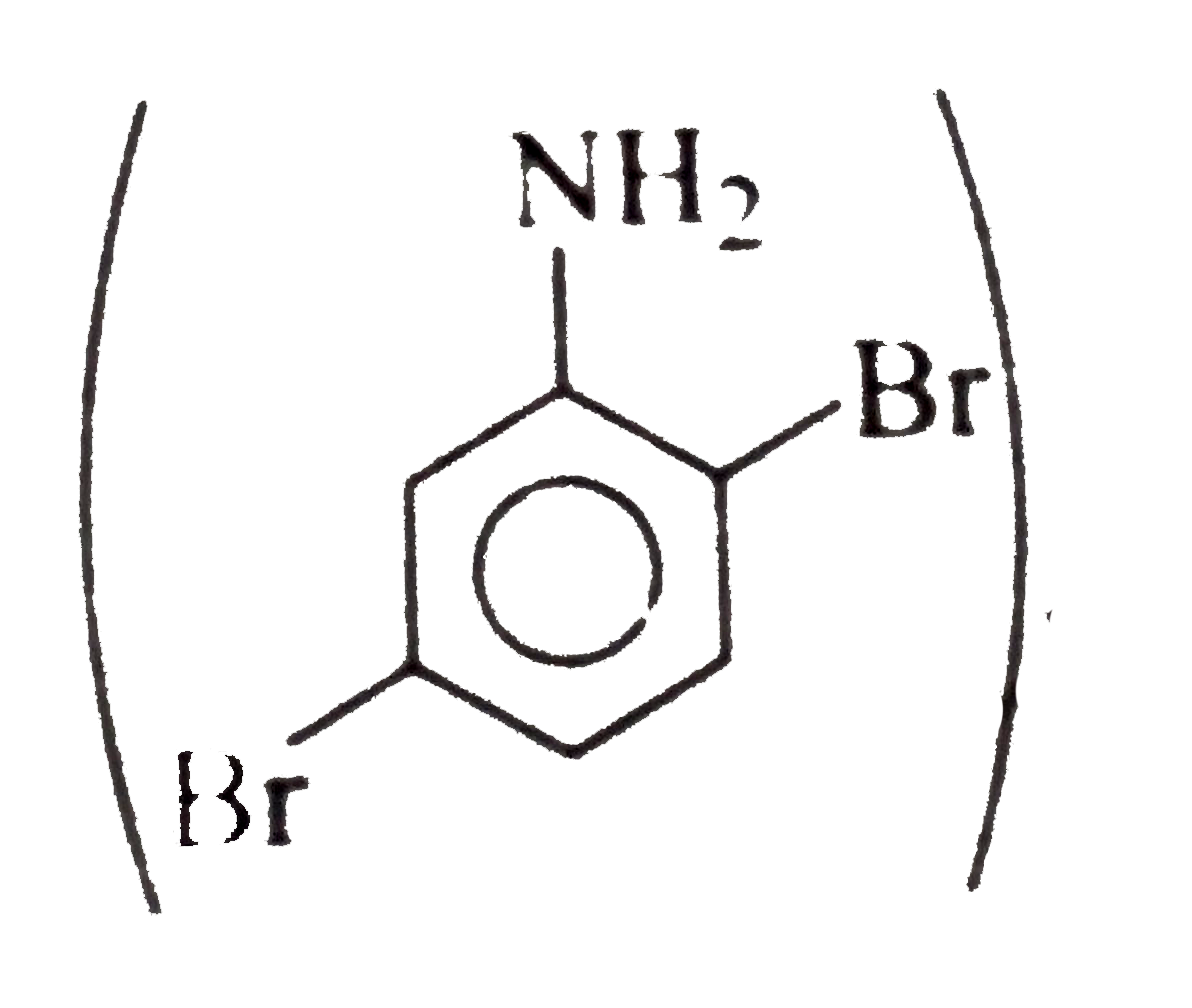
In compolund C , the (−NH2) group inremoved and one more (Br) group is introduced in (C ) , this suggests that compound (D)ocntaisn three (Br ) group, which is confirmed from the prectage of Br in (D).
The formation of one mon-nitro derivative from (D) suggests that three Br groups are present at symetrical jposition is (D)(AUS=231).
So Comoud (D) is <br>Reations:<br><imga≤ocr_imageload∈g=lazysrc=https://d10lpgp6xz60nq.cloudfront.net/physics_images/KSV_CHM_ORG_P2_C15_E01_038_S02.pngwh=80%mx-autosty≤=background:white;><br> (##KSV_CHM_ORG_P2_C15_E01_038_S03.png" width="80%">.
Colculation fo mumber of Br in (A) , (B) and (D) In (A) : 100 gm of compound contains =63.gmofBr
251gm of compound contins =63.7×251100gm
of Br=63.7×251100x780mol of Br=99=2molBr.
Br=63.7×251100x80mol of Br=1.99≈2molBr.
In (B) : molar mass of (B) (C6H4Br2_)=236gm
Moles of Br in (B)=67.80×236100×80=2molBr
In (D : ) Molar mass of (D) (C6H3Br3)=315gm
Moles of Br in (D)=76.4×315100×80=3molBr.
|
Topper's Solved these Questions
- ORGANIC COMPOUNDS WITH FUNCTIONAL GROUPBOOK - CENGAGE CHEMISTRY ENGLISHCHAPTER - ORGANIC COMPOUNDS WITH FUNCTIONAL GROUPEXERCISE - Exercises Multiple Correct
18 Videos
- ORGANIC COMPOUNDS WITH FUNCTIONAL GROUPBOOK - CENGAGE CHEMISTRY ENGLISHCHAPTER - ORGANIC COMPOUNDS WITH FUNCTIONAL GROUPEXERCISE - Exercises Single Correct
51 Videos
- ORGANIC COMPOUNDS WITH FUNCTIONAL GROUPBOOK - CENGAGE CHEMISTRY ENGLISHCHAPTER - ORGANIC COMPOUNDS WITH FUNCTIONAL GROUPEXERCISE - concept application 4
1 Videos
- NUCLEAR CHEMISTRYBOOK - CENGAGE CHEMISTRY ENGLISHCHAPTER - NUCLEAR CHEMISTRYEXERCISE - Archives Subjective
13 Videos
- P-BLOCK GROUP 15 ELEMENTS - THE NITROGEN FAMILYBOOK - CENGAGE CHEMISTRY ENGLISHCHAPTER - P-BLOCK GROUP 15 ELEMENTS - THE NITROGEN FAMILYEXERCISE - Exercises Archives (Subjective)
28 Videos
Similar Questions
Knowledge Check
(i)
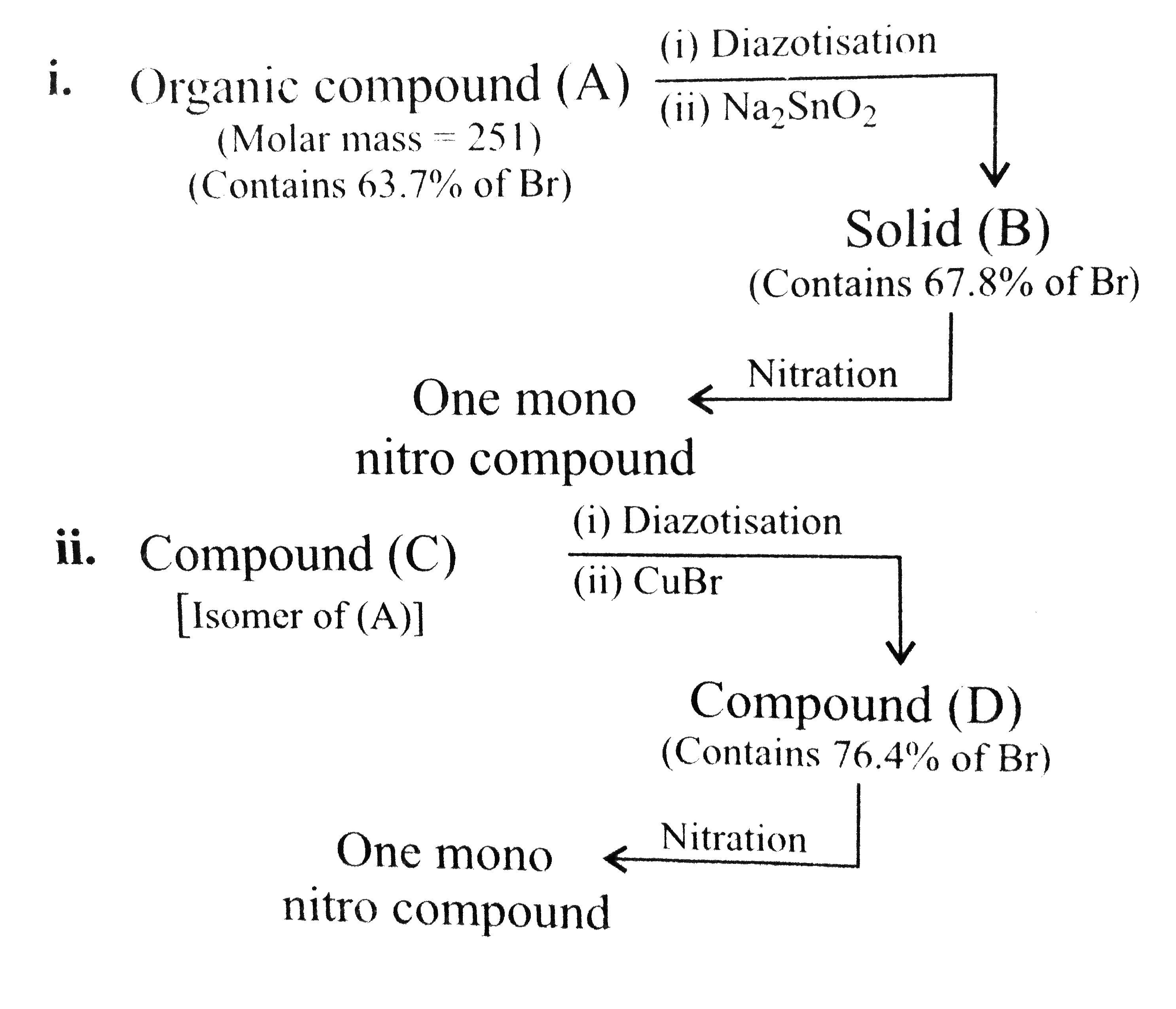
(ii)
Compound(C)is:A(I)B(II)C(III)D(IV)(i)
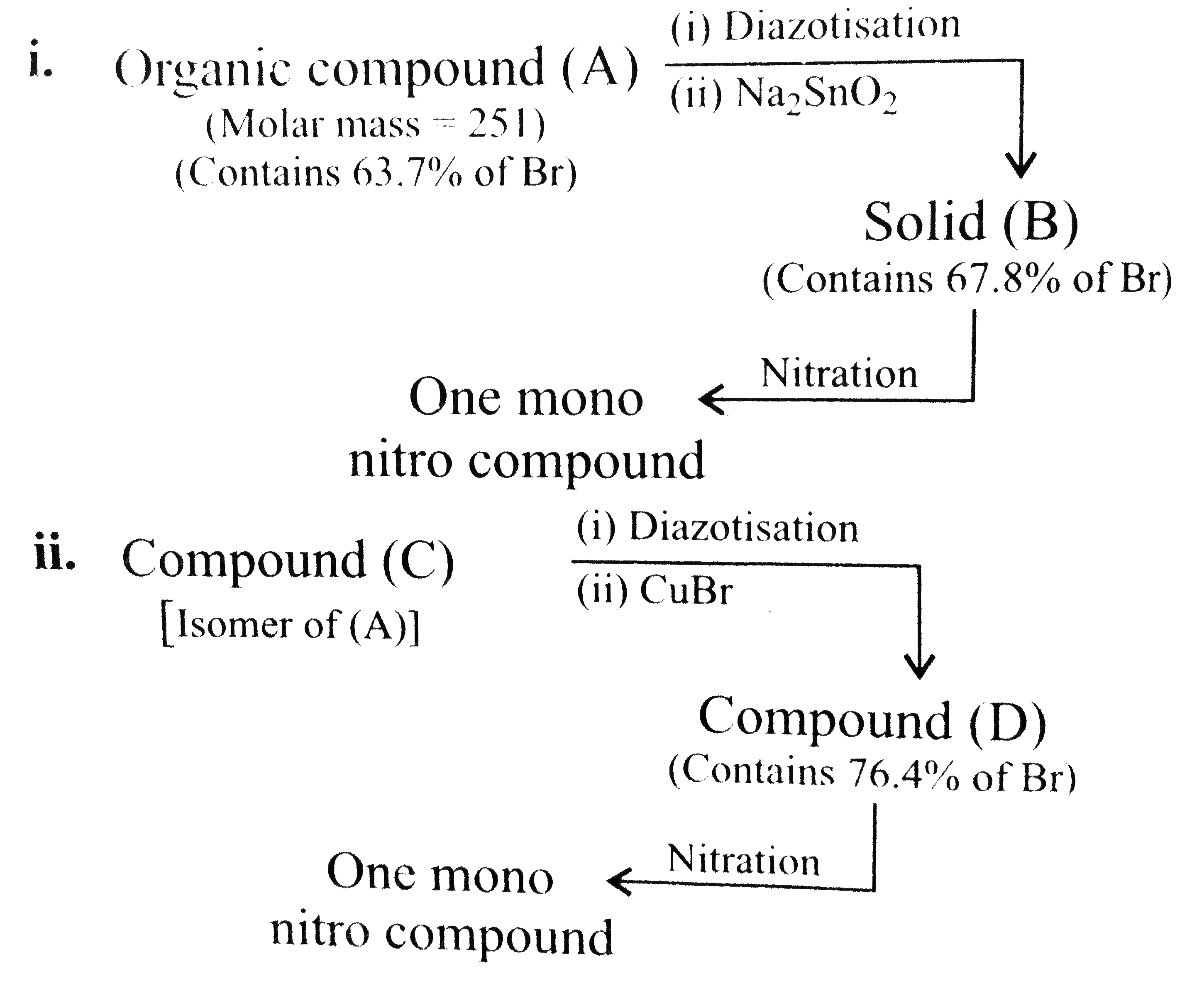
(ii)
Compound(D)is:A(V)B(VI)C(VII)D(VIII)(i) Carboxylic acid

(ii) Compound (D) is prepard by carbonation(Mg/ether,CO2/H3O+) of compound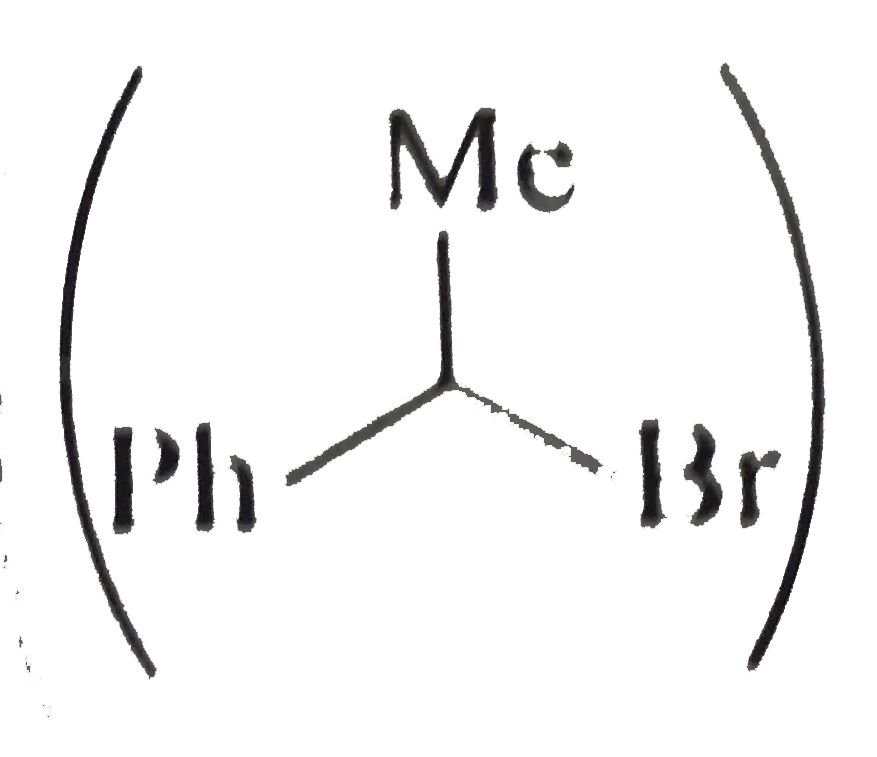
(iii) Compounds (A) and (D) give positive test with CrO3 in acid.
Compound (B) is :A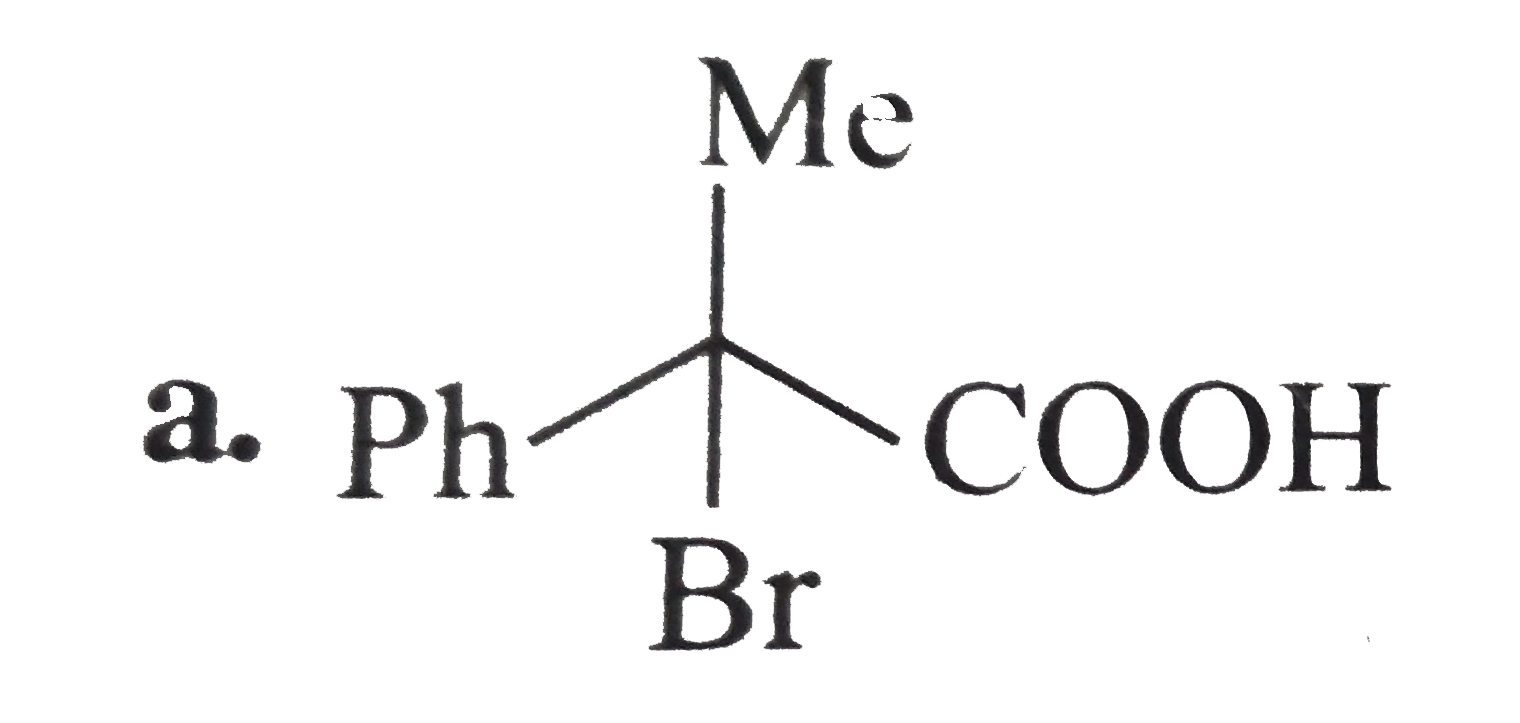 B
B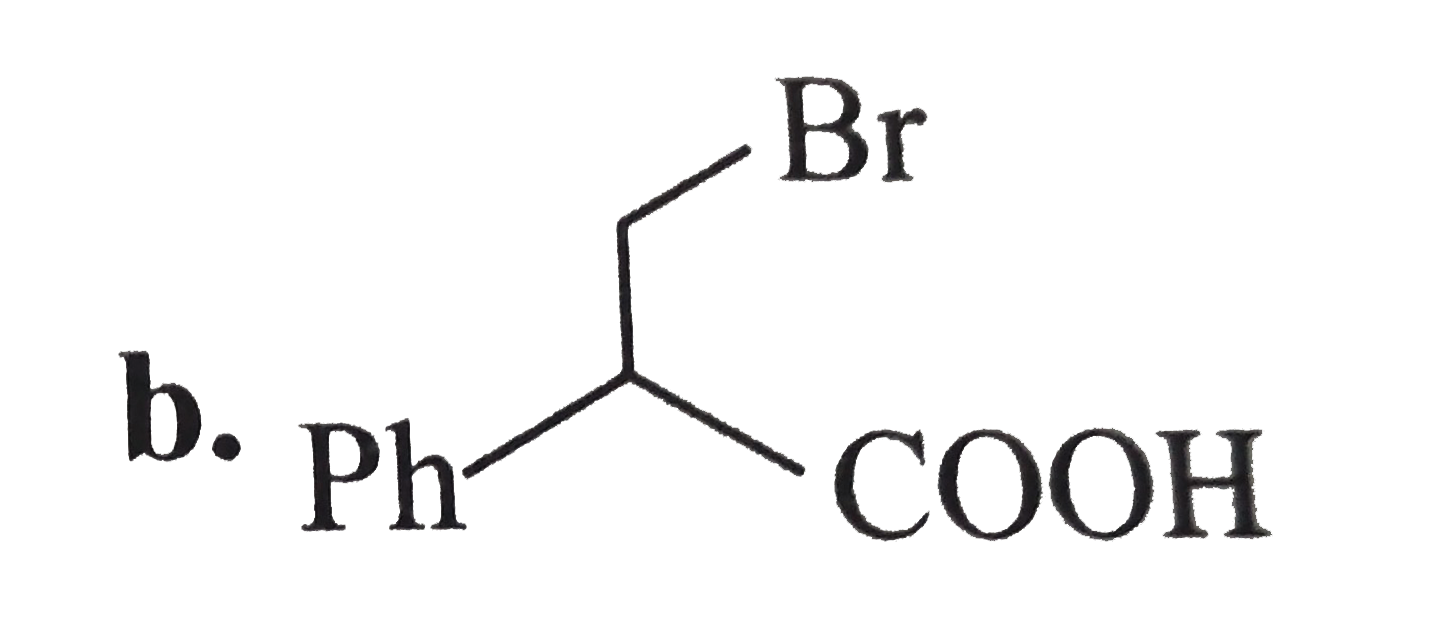 CBoth (a) and (b)D
CBoth (a) and (b)D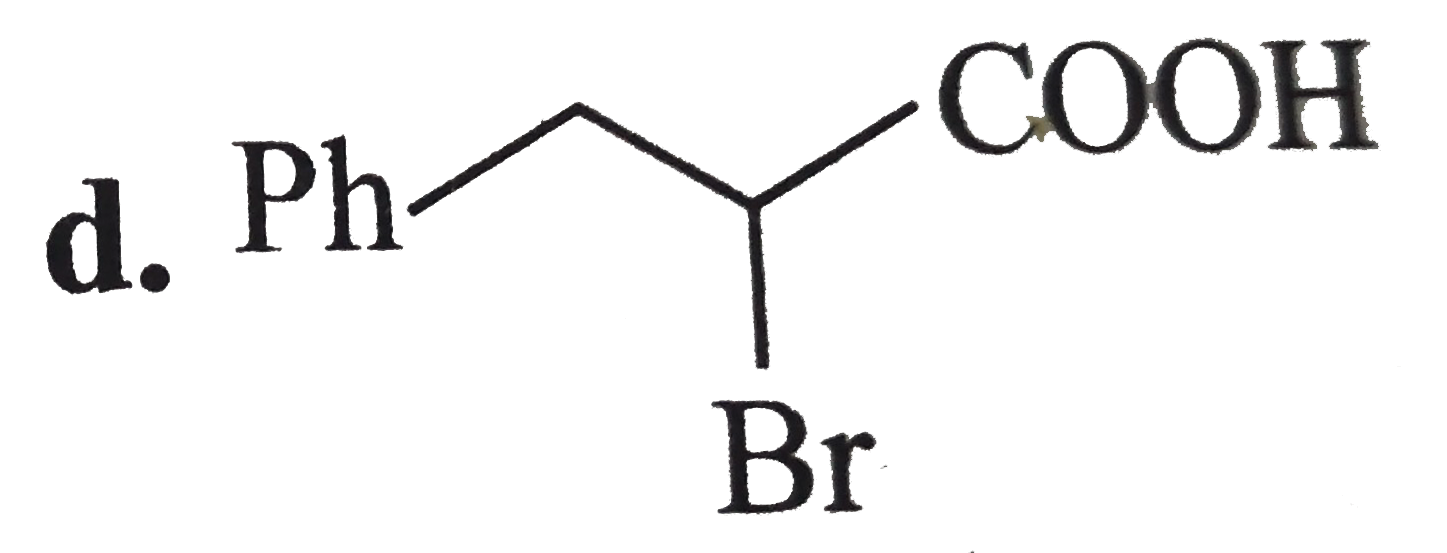

Compound (II) is/has
View Solutioni. Compound (A)
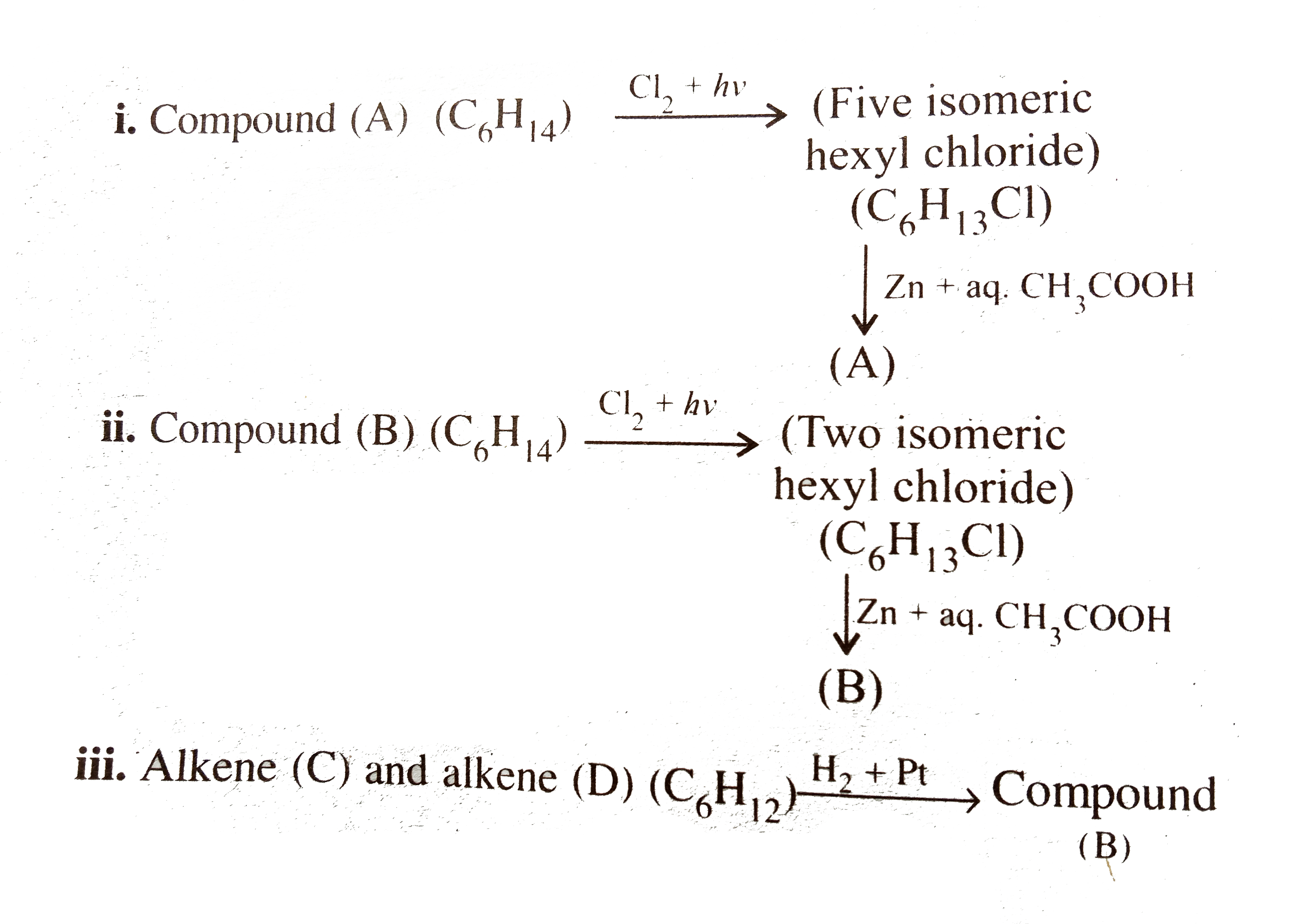
ii. Compound (B)
iii. Alkene (C) and alkane (D)
Compound (A) is:
View Solutioni. Compound (A)
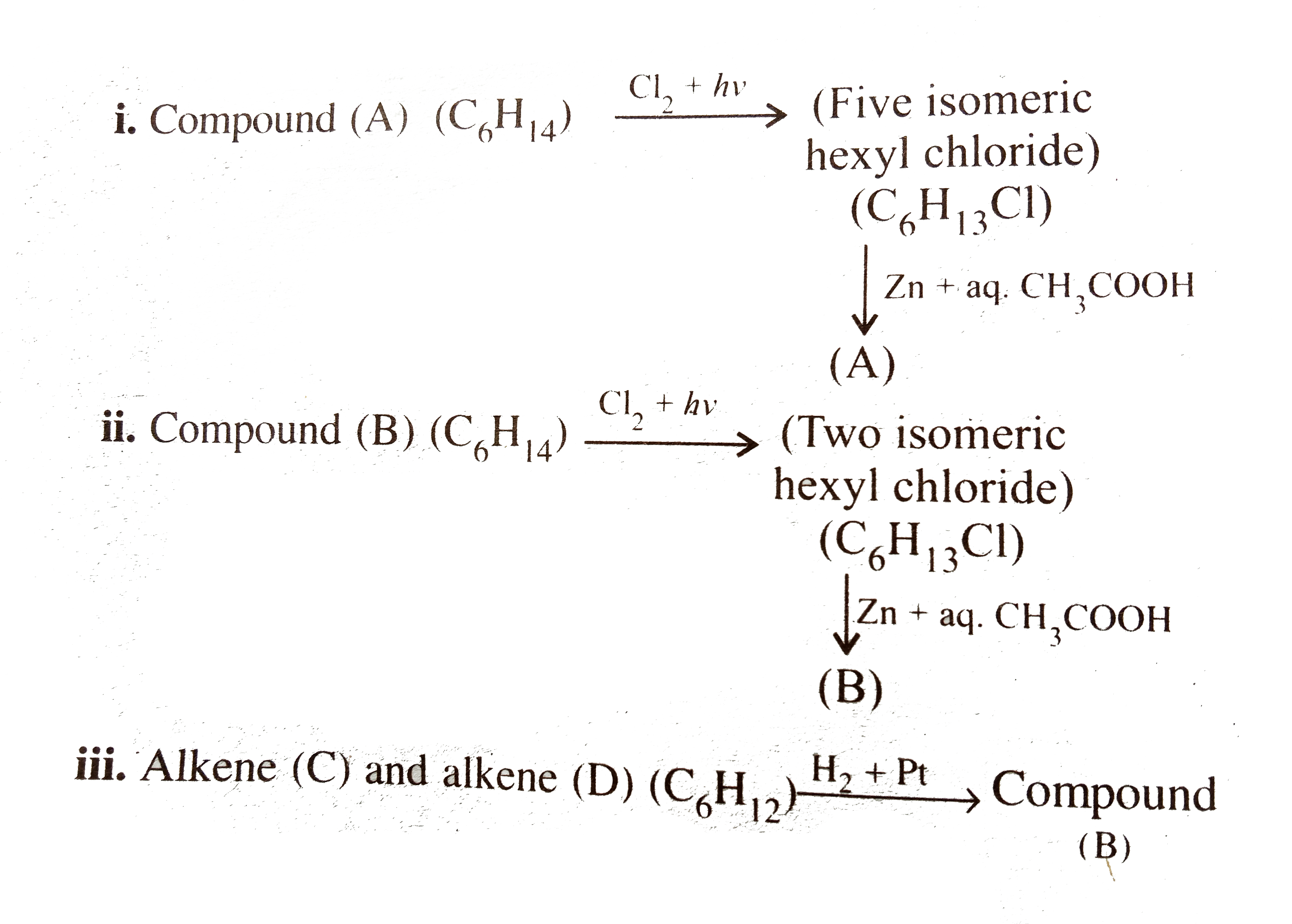
ii. Compound (B)
iii. Alkene (C) and alkane (D)
Compound (A) is:
View Solutioni. Compound (A)
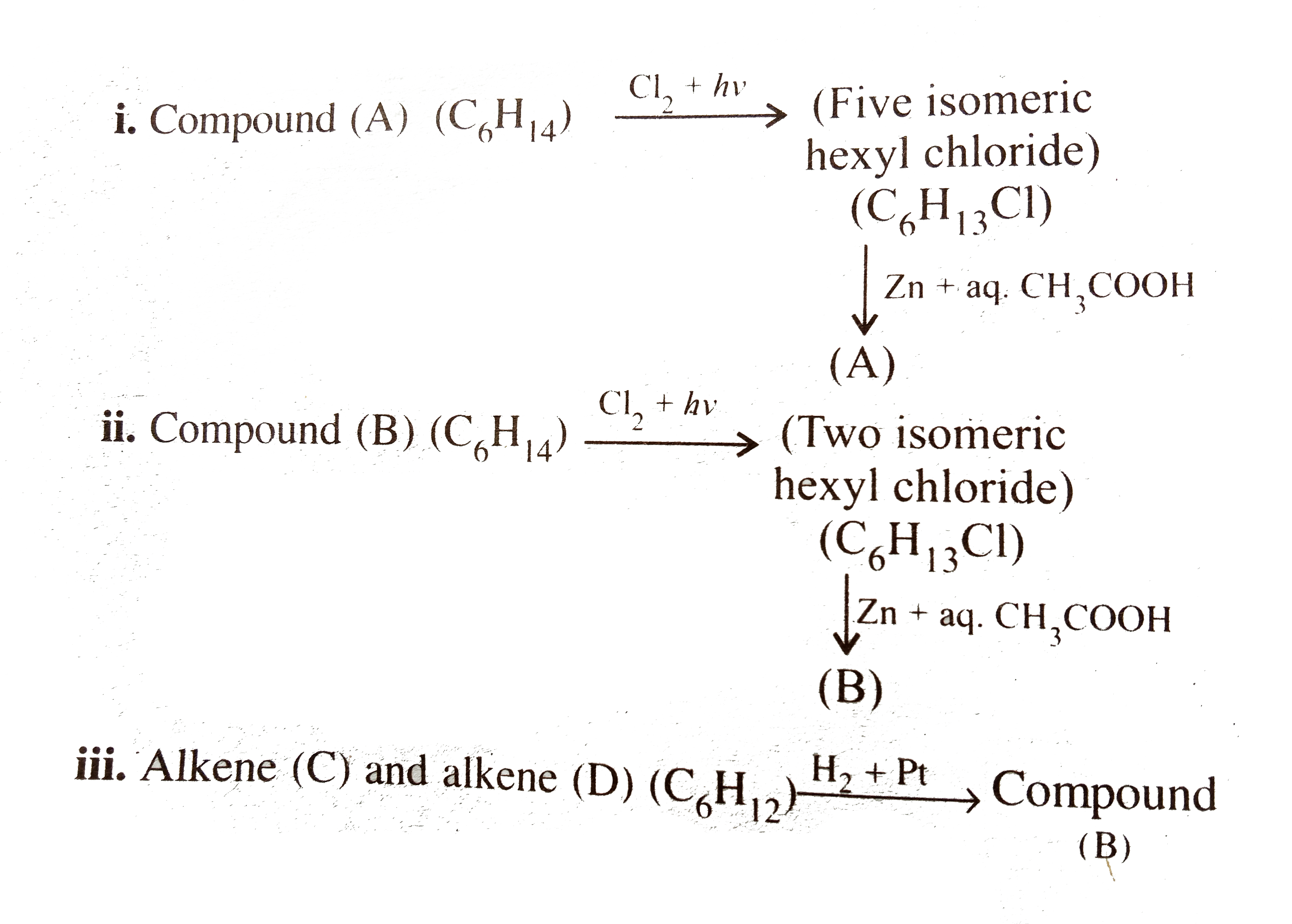
ii. Compound (B)
iii. Alkene (C) and alkane (D)
Compound (A) is:
View Solutioni. Compound (A)
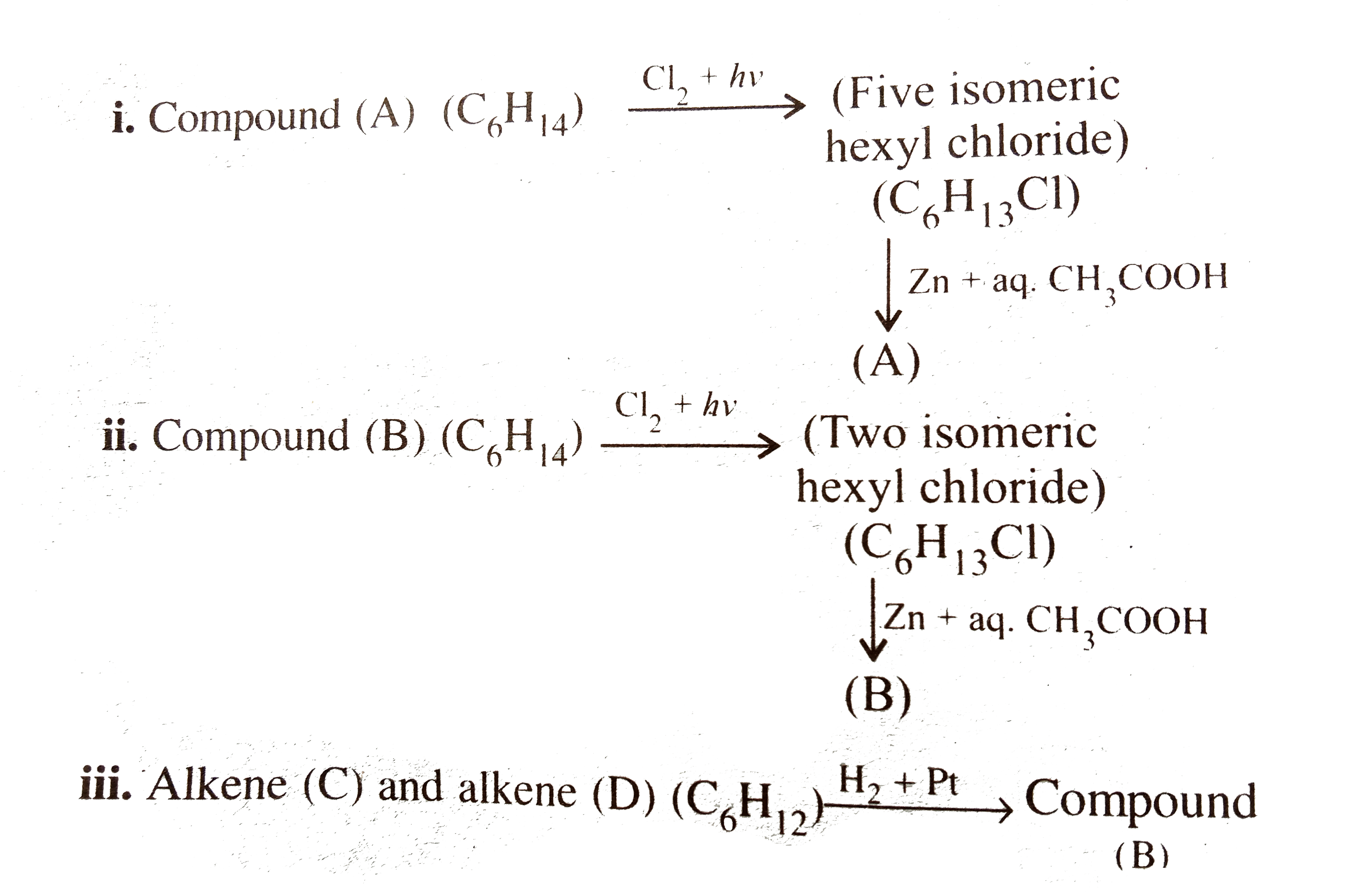
ii. Compound (B)
iii. Alkene (C) and alkane (D)
Compound (A) is:
View Solution
